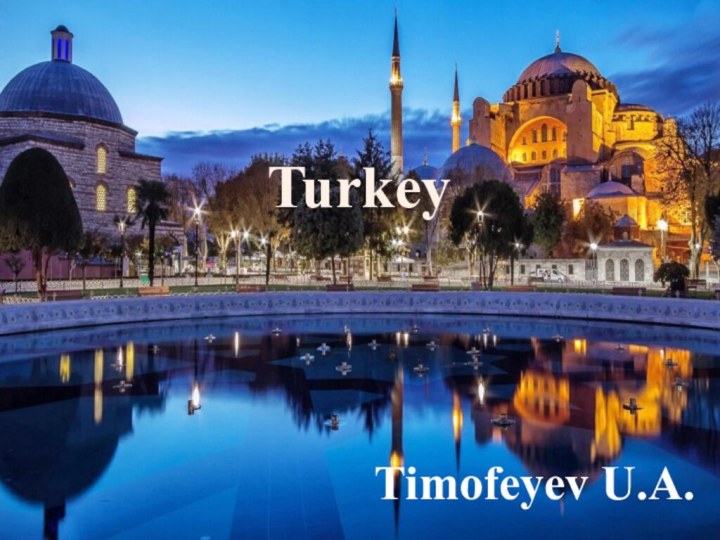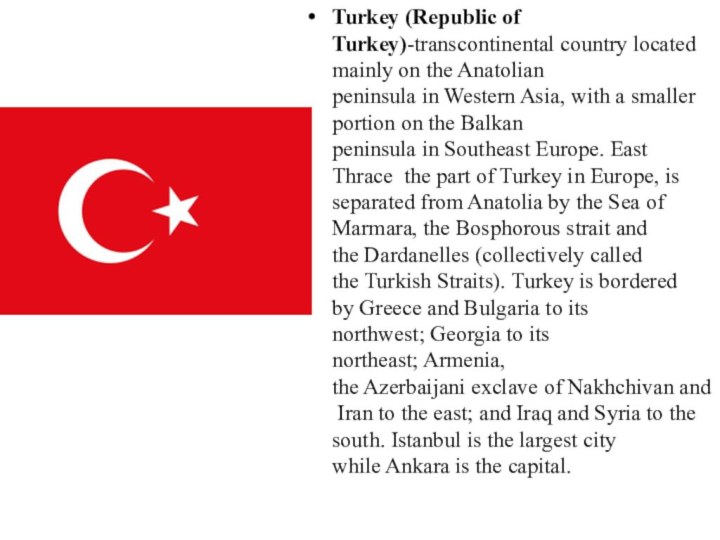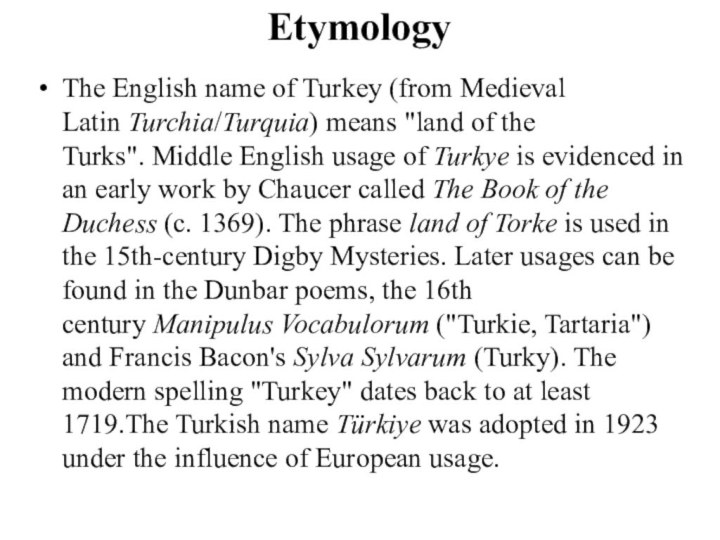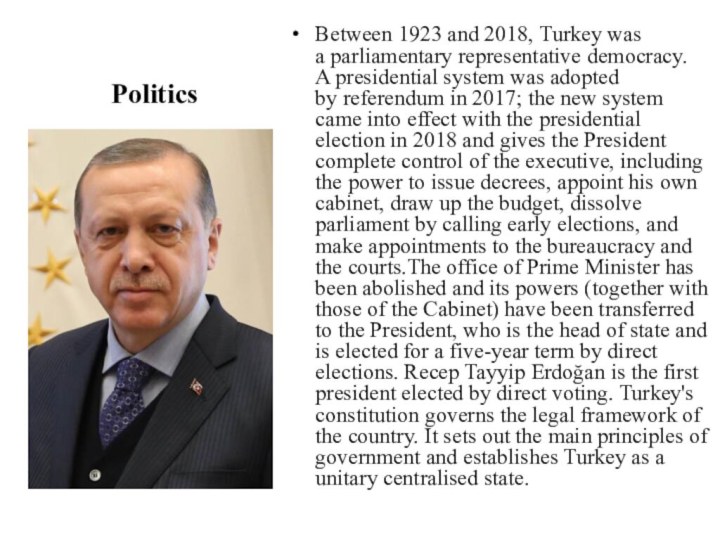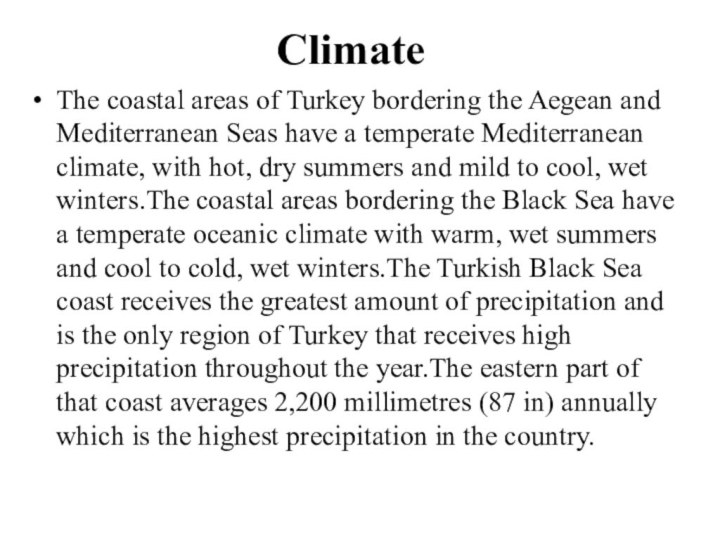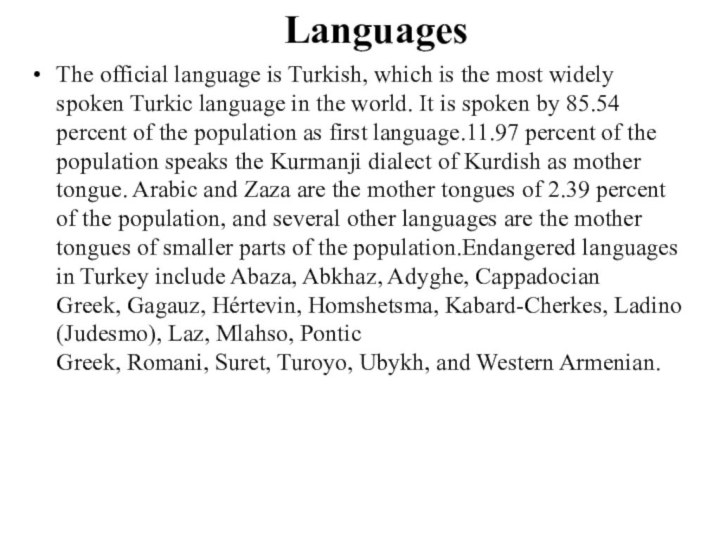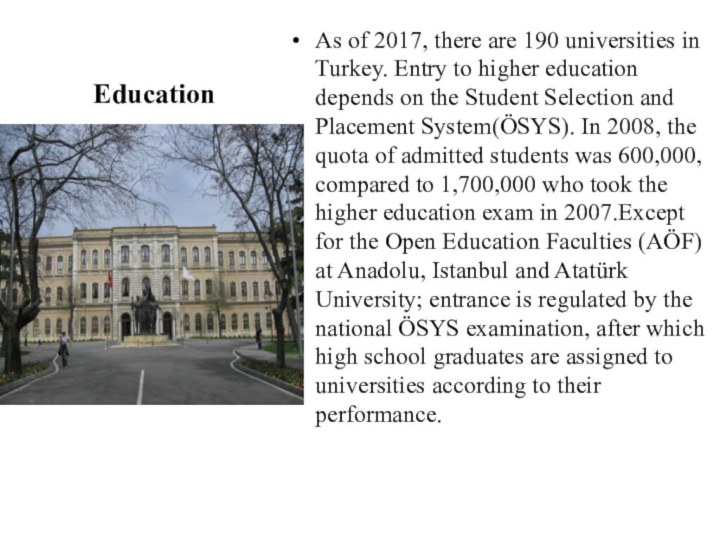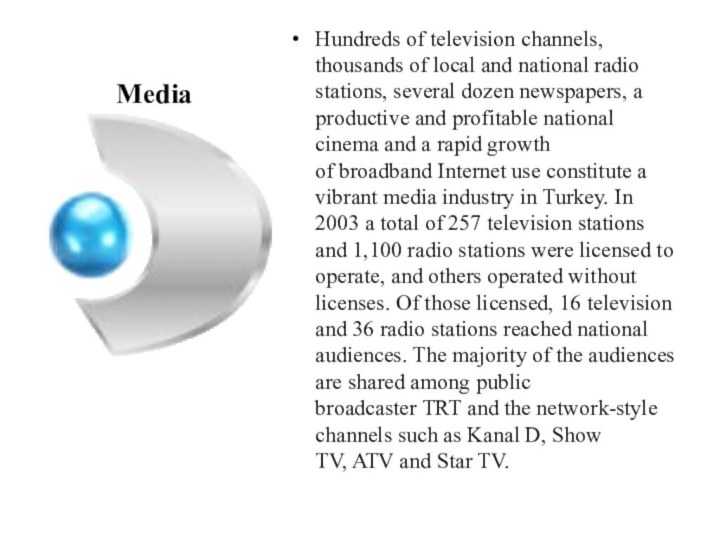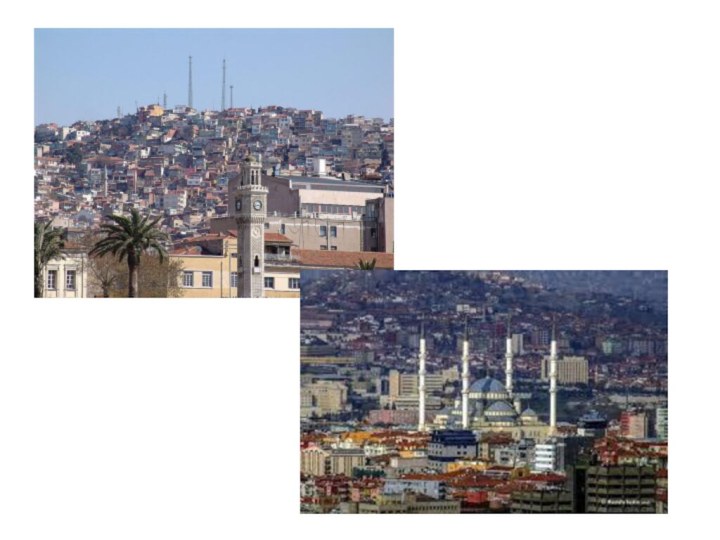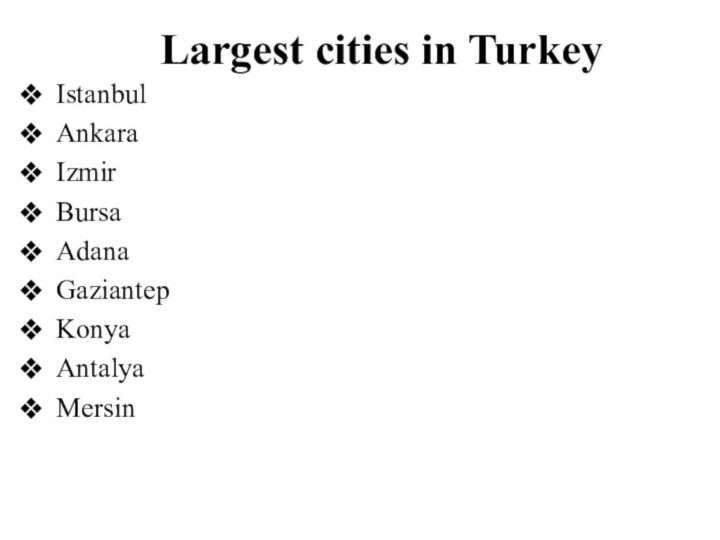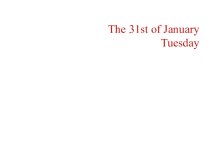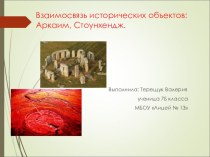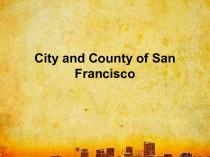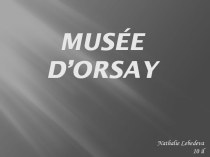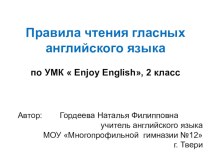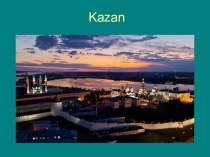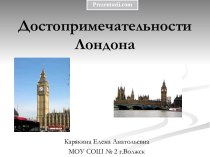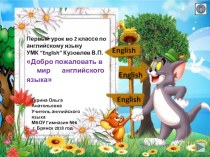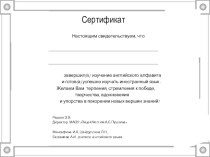Слайд 2
Turkey (Republic of Turkey)-transcontinental country located mainly on the Anatolian
peninsula in Western Asia, with a smaller portion on the Balkan peninsula in Southeast
Europe. East Thrace the part of Turkey in Europe, is separated from Anatolia by the Sea of Marmara, the Bosphorous strait and the Dardanelles (collectively called the Turkish Straits). Turkey is bordered by Greece and Bulgaria to its northwest; Georgia to its northeast; Armenia, the Azerbaijani exclave of Nakhchivan and Iran to the east; and Iraq and Syria to the south. Istanbul is the largest city while Ankara is the capital.
Слайд 3
Etymology
The English name of Turkey (from Medieval Latin Turchia/Turquia) means
"land of the Turks". Middle English usage of Turkye is evidenced in an
early work by Chaucer called The Book of the Duchess (c. 1369). The phrase land of Torke is used in the 15th-century Digby Mysteries. Later usages can be found in the Dunbar poems, the 16th century Manipulus Vocabulorum ("Turkie, Tartaria") and Francis Bacon's Sylva Sylvarum (Turky). The modern spelling "Turkey" dates back to at least 1719.The Turkish name Türkiye was adopted in 1923 under the influence of European usage.
Слайд 4
Politics
Between 1923 and 2018, Turkey was a parliamentary representative democracy.
A presidential system was adopted by referendum in 2017; the new system
came into effect with the presidential election in 2018 and gives the President complete control of the executive, including the power to issue decrees, appoint his own cabinet, draw up the budget, dissolve parliament by calling early elections, and make appointments to the bureaucracy and the courts.The office of Prime Minister has been abolished and its powers (together with those of the Cabinet) have been transferred to the President, who is the head of state and is elected for a five-year term by direct elections. Recep Tayyip Erdoğan is the first president elected by direct voting. Turkey's constitution governs the legal framework of the country. It sets out the main principles of government and establishes Turkey as a unitary centralised state.
Слайд 5
Climate
The coastal areas of Turkey bordering the Aegean
and Mediterranean Seas have a temperate Mediterranean climate, with hot, dry
summers and mild to cool, wet winters.The coastal areas bordering the Black Sea have a temperate oceanic climate with warm, wet summers and cool to cold, wet winters.The Turkish Black Sea coast receives the greatest amount of precipitation and is the only region of Turkey that receives high precipitation throughout the year.The eastern part of that coast averages 2,200 millimetres (87 in) annually which is the highest precipitation in the country.
Слайд 6
Languages
The official language is Turkish, which is the most widely spoken Turkic
language in the world. It is spoken by 85.54 percent of
the population as first language.11.97 percent of the population speaks the Kurmanji dialect of Kurdish as mother tongue. Arabic and Zaza are the mother tongues of 2.39 percent of the population, and several other languages are the mother tongues of smaller parts of the population.Endangered languages in Turkey include Abaza, Abkhaz, Adyghe, Cappadocian Greek, Gagauz, Hértevin, Homshetsma, Kabard-Cherkes, Ladino (Judesmo), Laz, Mlahso, Pontic Greek, Romani, Suret, Turoyo, Ubykh, and Western Armenian.
Слайд 7
Education
As of 2017, there are 190 universities in Turkey. Entry
to higher education depends on the Student Selection and Placement
System(ÖSYS). In 2008, the quota of admitted students was 600,000, compared to 1,700,000 who took the higher education exam in 2007.Except for the Open Education Faculties (AÖF) at Anadolu, Istanbul and Atatürk University; entrance is regulated by the national ÖSYS examination, after which high school graduates are assigned to universities according to their performance.
Слайд 8
Media
Hundreds of television channels, thousands of local and
national radio stations, several dozen newspapers, a productive and
profitable national cinema and a rapid growth of broadband Internet use constitute a vibrant media industry in Turkey. In 2003 a total of 257 television stations and 1,100 radio stations were licensed to operate, and others operated without licenses. Of those licensed, 16 television and 36 radio stations reached national audiences. The majority of the audiences are shared among public broadcaster TRT and the network-style channels such as Kanal D, Show TV, ATV and Star TV.
Слайд 10
Largest cities in Turkey
Istanbul
Ankara
Izmir
Bursa
Adana
Gaziantep
Konya
Antalya
Mersin
